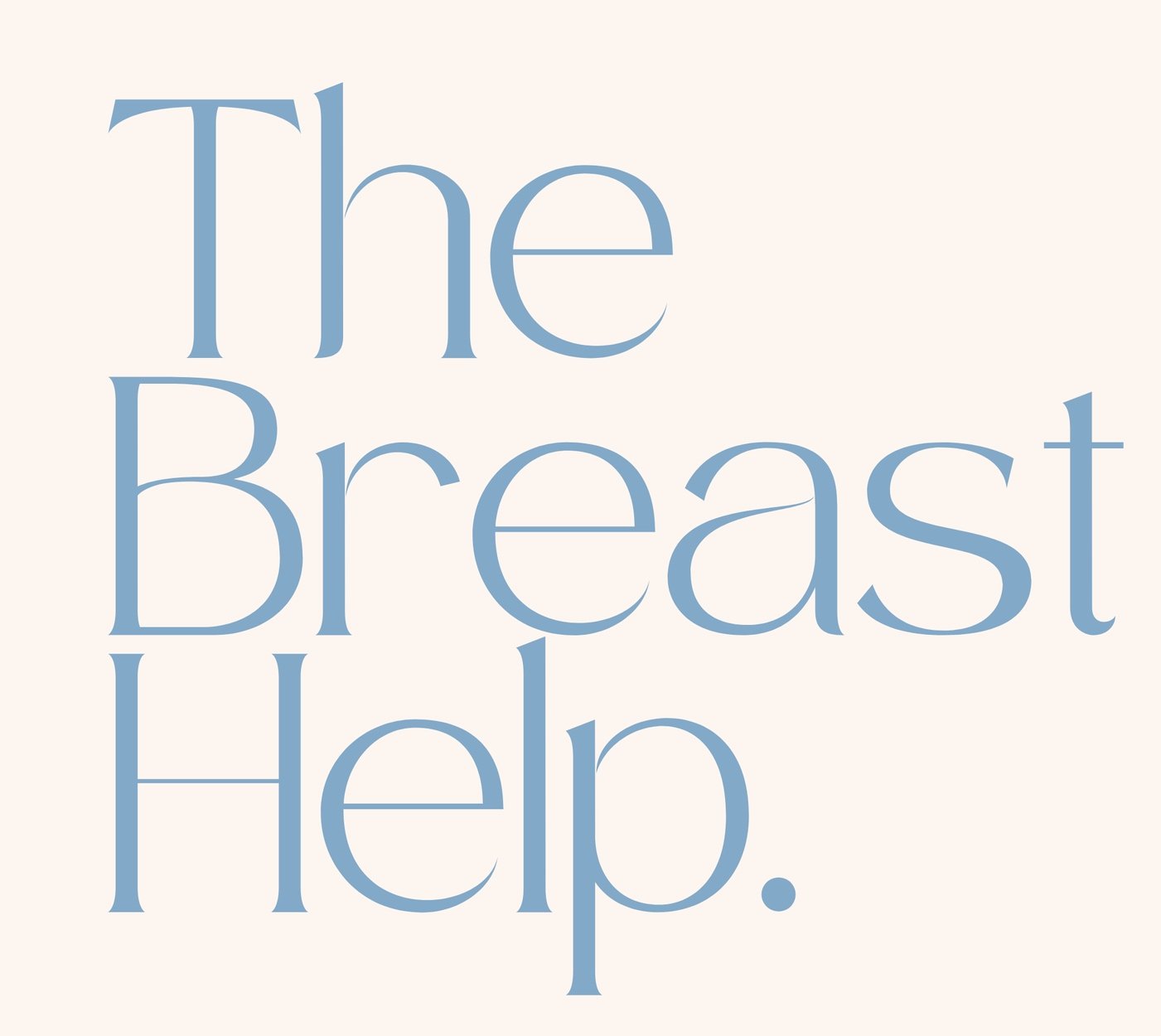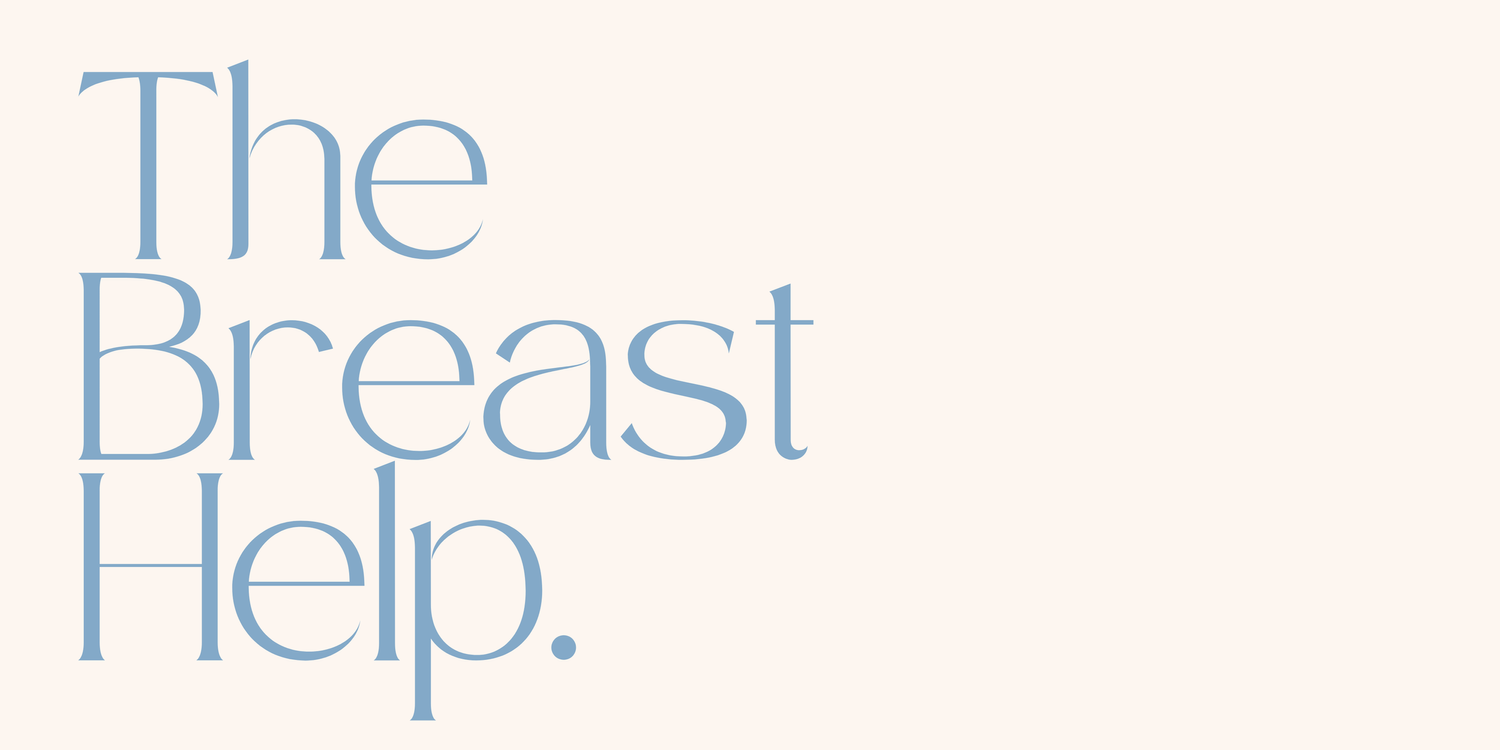Breastfeeding and Your Period: What to Expect When Your Cycle Returns
When your period comes back (even while breastfeeding)
Many women are surprised when their period returns while they’re still breastfeeding. For some, it happens just a few months after birth. For others, it might not reappear until their baby is well into toddlerhood.
The timing depends on a few key factors:
Frequency of breastfeeding: The more often your baby nurses, especially overnight, the longer your period may stay away.
Hormonal balance: Prolactin, the hormone responsible for milk production, can suppress ovulation — but everyone’s sensitivity differs.
Your individual cycle history: Some people’s reproductive systems simply restart sooner, regardless of how often they feed.
On average, menstruation returns anywhere between 6 weeks and 18 months postpartum. There’s a wide range of “normal.”
Does breastfeeding affect your period (and vice versa)?
Yes - - - it works both ways.
Breastfeeding influences your hormonal cycle, and once your period returns, those hormonal shifts can temporarily affect your milk.
Around your period, you might notice:
Slight drops in milk supply for a few days (often 2–3 days before bleeding starts)
Your baby feeding more frequently or seeming fussier at the breast
Changes in milk taste or composition, as sodium and calcium levels shift
Tender nipples or increased sensitivity
These changes are temporary. As hormone levels stabilise after menstruation begins, supply and feeding usually return to normal within a few days.
Why supply can dip — and what to do about it
The hormonal changes just before and during menstruation - particularly drops in calcium and magnesium - can slightly reduce milk volume or alter how milk flows.
You can support your supply and comfort by:
Staying hydrated: Drink to thirst.
Eating regularly: Balanced meals rich in protein, whole grains, and healthy fats help stabilise energy and hormones.
Adding calcium and magnesium-rich foods: Think leafy greens, almonds, yoghurt, oats, or a gentle supplement if advised by your care provider.
Feeding or pumping often: Milk removal signals production. Even during dips, keep stimulating the breasts frequently.
Offering the breast when baby cues: Babies may nurse more often when flow slows — this helps keep supply steady.
If your supply doesn’t recover after your period, or if drops become consistent month after month, it can help to review your feeding plan with an IBCLC.
Does your milk taste different?
Some parents notice their baby fusses or pulls off more around menstruation. This isn’t rejection — it’s often because milk taste changes slightly when sodium levels rise in the days before your period.
Most babies adjust within a few feeds. You don’t need to discard milk expressed during your period; it’s still safe and nutritious.
Fertility and contraception while breastfeeding
It’s a common myth that you can’t fall pregnant while breastfeeding.
While exclusive, frequent breastfeeding can delay ovulation, it isn’t foolproof once your baby starts solids, stretches feeds overnight, or your period returns.
The Lactational Amenorrhea Method (LAM) can be around 98% effective for the first six months only if:
You’re exclusively breastfeeding (no long gaps between feeds)
Your period hasn’t returned
Your baby is under six months old
Once any of these change, fertility can return, even before your first visible period.
Repeat after me - “You ovulate BEFORE you menstruate”.
If avoiding pregnancy is important, talk to your GP about breastfeeding-compatible contraception.
Managing nipple tenderness and mood changes
It’s not uncommon for nipples to feel more sensitive or for you to notice mood fluctuations around menstruation. Hormonal shifts, lower oestrogen, and reduced dopamine can all play a part.
Gentle strategies include:
Adjusting positioning for comfort
Using warm compresses before feeding to ease sensitivity
Prioritising rest and hydration
Seeking support if mood changes feel intense or persistent
If you notice significant discomfort, recurrent blocked ducts, or feelings of low mood tied to your cycle, reach out to your healthcare provider or an IBCLC for tailored advice.
When to seek help
You don’t need to “push through” if breastfeeding becomes painful or stressful around your cycle. Professional support can make all the difference if:
Milk supply doesn’t recover after your period
You experience recurrent plugged ducts or mastitis symptoms
Your baby’s weight gain changes noticeably
You’re concerned about fertility or contraception while feeding
An IBCLC can help identify whether hormonal, mechanical, or feeding factors are at play and support you with practical, evidence-based strategies.
What I want you to remember…
Getting your period while breastfeeding is completely normal - it’s just another stage in your body’s gradual return to balance.
You may notice minor changes in supply, taste, or comfort, but they’re almost always temporary and manageable.
Stay hydrated, rest when you can, and keep feeding responsively. Your body is recalibrating, and with a little awareness, you can navigate this phase smoothly.
If you ever feel unsure, reach out for guidance. Support from a lactation consultant can help you maintain confidence and comfort through every stage of your breastfeeding journey.
References
Institute of Medicine. Nutrition During Lactation. National Academies Press, 2023 update.
Kent J.C. et al. (2022). Hormonal regulation of lactation and the menstrual cycle. Journal of Human Lactation, 38(4), 707-716.
La Leche League International (2023). Breastfeeding and menstruation.
Australian Breastfeeding Association (2024). Periods and breastfeeding.
Hale T. & Rowe H. (2023). Medications and Mothers’ Milk, 20th ed.

